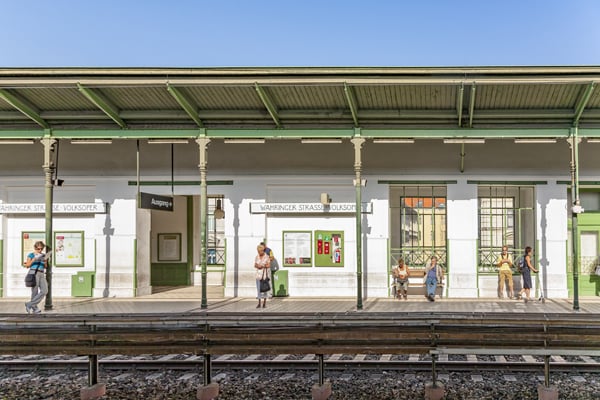
Vienna has a public and private healthcare system that provides quality medical care to its citizens and visitors. Austria’s public healthcare system is called the Gesundheits- und Krankenpflegegesetz (GKK) and is used by both citizens and foreigners. People generally recommend using public hospitals in Vienna for serious medical emergencies and major surgery. Public hospitals in Vienna are well-equipped and staffed with experienced medical professionals. Foreigners, including expats and digital nomads, are allowed to use the public healthcare system in Austria. However, many expats primarily use private hospitals for their medical needs. Private hospitals in Vienna are known for their excellent care and modern facilities. People recommend using private hospitals for serious medical emergencies and major surgery.
Hospitals and Clinics for Expats in Vienna
Recommended clinics and hospitals in Vienna include:
- AKH Vienna (public hospital), located in the Alsergrund district
- Wilhelminenspital (public hospital), located in the Mariahilf district
- MedUni Vienna (public hospital), located in the Meidling district
- St. Anna Children’s Hospital (public hospital), located in the Landstraße district
- Lainz Hospital (private hospital), located in the Penzing district
- Donauspital (private hospital), located in the Brigittenau district
- Krankenhaus Hietzing (private hospital), located in the Hietzing district
If there are few or no hospitals in Vienna, expats in Vienna may go to hospitals in nearby towns such as Baden (25 km away by car) or Krems (50 km away by car).
Emergency Services in Vienna
Vienna has an ambulance service that can be called by dialing the emergency number 144. Ambulances usually arrive quickly, but there may be delays depending on the situation.
Health Insurance Companies in Vienna
The most popular private health insurers in Vienna are BVAEB, Wiener Gebietskrankenkasse, and SVA. Expats and digital nomads typically use these companies or specialized expat health insurance providers.
Insider Tips from Expats in Vienna: Health Care
“I’ve been living in Vienna for a few years now, and I can tell you that it’s definitely possible to live comfortably on $5,000 a month, even if you’re used to modern amenities. Of course, you might have to make some sacrifices, but overall, you can still enjoy a good quality of life.First, let’s talk about housing. If you want to save some money, I’d recommend looking for an apartment in more affordable neighborhoods like Favoriten, Ottakring, or Simmering. These areas are a bit further from the city center, but they’re well-connected by public transportation, and you can find nice apartments for a reasonable price. On the other hand, if you’re willing to spend more on rent, you can consider more expensive neighborhoods like Innere Stadt, Alsergrund, or Wieden. These areas are closer to the city center and offer a more upscale living experience, but you’ll have to pay a premium for that.When it comes to transportation, Vienna has an excellent public transportation system, so you don’t necessarily need a car. A monthly pass for public transportation costs around €50, which is quite affordable. If you do decide to get a car, keep in mind that parking can be expensive, especially in the city center, and gas prices are higher than in the US.As for groceries and dining out, you’ll find that prices are generally reasonable, although some items might be more expensive than what you’re used to. For example, imported products and specialty items can be pricey. However, if you shop at local markets and discount supermarkets like Hofer or Lidl, you can save a lot on groceries. When it comes to eating out, there are plenty of affordable options, especially if you’re open to trying local cuisine. Of course, there are also more upscale restaurants, but you might want to save those for special occasions.In terms of entertainment and leisure activities, Vienna offers a wide range of options, from museums and theaters to parks and outdoor activities. Many of these can be enjoyed for free or at a low cost, so you don’t have to worry about breaking the bank. For example, you can visit the beautiful Schönbrunn Palace gardens for free, or get a yearly museum pass for around €100, which gives you access to many of the city’s top museums.Overall, I think you can live comfortably in Vienna on $5,000 a month, as long as you’re willing to make some adjustments and be mindful of your spending. It’s a beautiful city with a lot to offer, and I’m sure you’ll enjoy your time here,” commented an expat living in Vienna.


